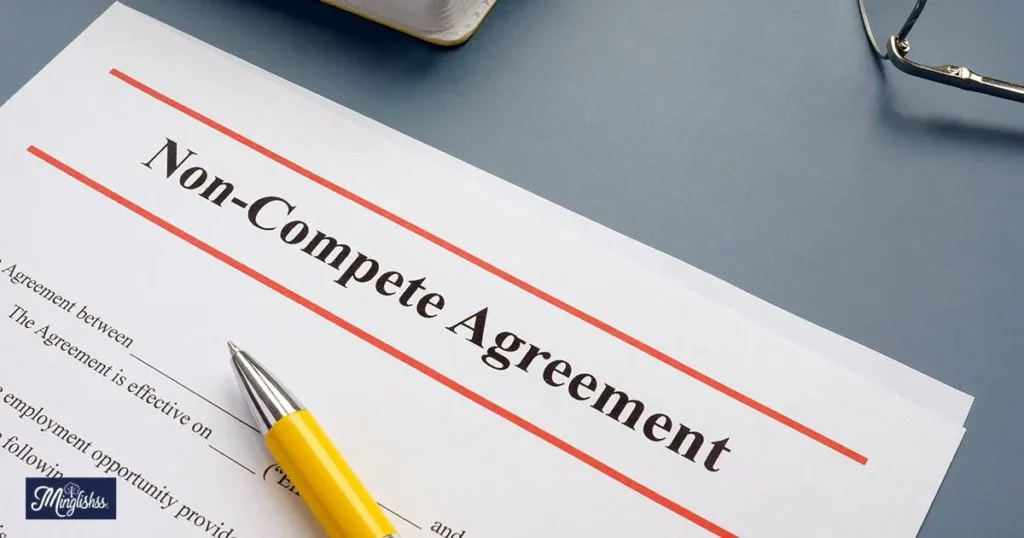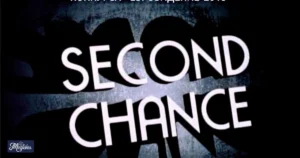“Your perspective aligns perfectly with my understanding.”
In professional and formal settings, expressing agreement is often necessary, whether during meetings, presentations, or written communications. While “I agree with you” is a common phrase, diversifying your expressions can enhance your communication and convey a deeper level of respect and understanding.
Using varied language also makes discussions more engaging and shows that you are actively listening to others.
This blog post explores 35 alternative ways to say “I agree with you formally.” Each phrase will be accompanied by scenarios and explanations to illustrate how to use them effectively in different contexts. By varying your expressions of agreement, you can contribute to a more productive and respectful dialogue.
1. I Completely Endorse Your Position
Scenario: Expressing agreement during a board meeting.
Subject Explanation: This phrase emphasizes strong support for someone’s viewpoint.
Additional Tip: Provide specific reasons why you endorse their position to strengthen your argument.
2. I Fully Support Your Argument
Scenario: Commenting on a colleague’s proposal.
Subject Explanation: Clearly states your backing for their point of view.
Additional Tip: Mention any additional points that reinforce their argument.
3. I concur with Your Analysis
Scenario: Responding to a detailed report presentation.
Subject Explanation: Indicates agreement while highlighting the analysis provided.
Additional Tip: Offer insights that can further enhance their analysis.
4. I See Eye to Eye with You
Scenario: Agreeing in a discussion about project strategies.
Subject Explanation: This informal phrase conveys mutual understanding.
Additional Tip: Use this phrase when discussing collaborative efforts.
5. Your Insights Are Aligned with My Own
Scenario: Writing feedback on a colleague’s presentation.
Subject Explanation: Acknowledges the shared understanding of the topic.
Additional Tip: Reinforce your agreement by referencing specific points they made.
6. I Am in Accord with Your Viewpoint
Scenario: Discussing policy changes in a meeting.
Subject Explanation: A formal way to express agreement.
Additional Tip: Suggest actionable steps based on this shared viewpoint.
7. I Advocate for Your Position
Scenario: Supporting a colleague’s stance on a team decision.
Subject Explanation: Indicates a proactive approach in backing their opinion.
Additional Tip: Encourage others to consider their perspective as well.
8. I Appreciate Your Perspective and Agree
Scenario: Acknowledging someone’s thoughts during a debate.
Subject Explanation: This phrase shows respect for their viewpoint while agreeing.
Additional Tip: Highlight any areas where your thoughts align closely.
9. Your Arguments Are Persuasive
Scenario: Responding to a proposal that resonates with you.
Subject Explanation: Acknowledges the effectiveness of their reasoning.
Additional Tip: Suggest further exploration of their ideas for implementatiI Agree with You Formallyon
10. I Find Your Position Compelling
Scenario: Engaging in discussions about strategic direction.
Subject Explanation: Indicates a strong attraction to their reasoning.
Additional Tip: Propose collaborating on the implementation of their ideas.
11. I Am in Full Agreement with You

Scenario: Giving feedback in a formal meeting.
Subject Explanation: A clear and direct statement of agreement.
Additional Tip: Clarify any specific points you agree on to strengthen your position.
12. Your Proposition Resonates with Me
Scenario: Responding to a colleague’s suggestions.
Subject Explanation: Conveys a deep connection with their ideas.
Additional Tip: Discuss potential benefits of their proposal.
13. I Align with Your Conclusions
Scenario: Reviewing a report that draws similar conclusions.
Subject Explanation: A formal way to express agreement with the results.
Additional Tip: Suggest further actions based on these conclusions I Agree with You Formally.
14. Your Perspective Is Well-Founded
Scenario: Evaluating someone’s argument during a debate.
Subject Explanation: Acknowledges the validity of their point of view.
Additional Tip: Encourage others to consider their reasoning in discussions.
15. I Share Your Concerns
Scenario: Discussing potential risks in a project meeting.
Subject Explanation: Shows empathy while agreeing with their worries.
Additional Tip: Propose solutions to address these concerns collaboratively.
16. I Support Your Conclusion Wholeheartedly
Scenario: Endorsing a decision made by a team member.
Subject Explanation: This phrase emphasizes strong endorsement.
Additional Tip: Encourage the team to implement their decision.
17. I Find Myself in Agreement with You
Scenario: Participating in a discussion about strategic planning.
Subject Explanation: Indicates shared thoughts in a formal manner.
Additional Tip: Mention any data or evidence that supports their position.
18. I Completely Understand Your Position
Scenario: Discussing differing opinions in a meeting.
Subject Explanation: Acknowledges their viewpoint and indicates agreement.
Additional Tip: Build on their ideas to move the discussion forward.
19. I Agree with Your Rationale
Scenario: Providing feedback on a colleague’s reasoning.
Subject Explanation: Highlights the logic behind their argument.
Additional Tip: Suggest areas where their rationale can be applied further I Agree with You Formally.
20. I Share Your Perspective on This Matter
Scenario: Offering support during a discussion about team dynamics.
Subject Explanation: Clearly states shared thoughts on the issue.
Additional Tip: Encourage others to express similar viewpoints.
21. Your Argument Is Convincing
Scenario: Responding to a persuasive speech.
Subject Explanation: Recognizes the effectiveness of their reasoning.
Additional Tip: Discuss how this can impact future decisions.
22. I Recognize the Validity of Your Points
Scenario: Engaging in a debate on market strategies.
Subject Explanation: Acknowledges the strength of their arguments.
Additional Tip: Suggest ways to incorporate their ideas into practice.
23. I Endorse Your Recommendations
Scenario: Supporting a colleague’s suggestions during a meeting.
Subject Explanation: Clearly states agreement with their proposed actions.
Additional Tip: Share your thoughts on how to execute these recommendations I Agree with You Formally.
24. I Hold Your Views in High Regard
Scenario: Expressing respect for a senior colleague’s opinion.
Subject Explanation: Indicates appreciation and agreement.
Additional Tip: Consider referencing specific points to reinforce your respect.
25. I Am Committed to Supporting Your Position
Scenario: Collaborating with a colleague on a project.
Subject Explanation: Shows dedication to their viewpoint.
Additional Tip: Offer specific ways you can help in implementing their ideas.
Other Ways to Say “Happy to Assist”
26. I Find Your Arguments Logical
Scenario: Analyzing a presentation during a team meeting.
Subject Explanation: Emphasizes the clarity of their reasoning.
Additional Tip: Discuss any additional data that supports their logic.
27. I Can Support Your Assertions
Scenario: Backing a colleague’s claims in a report.
Subject Explanation: Indicates readiness to support their statements.
Additional Tip: Encourage further discussion on their points.
28. I Agree with Your Observations

Scenario: Evaluating insights shared during a discussion.
Subject Explanation: Acknowledges the importance of their insights.
Additional Tip: Build on their observations to enhance group discussions.
29. Your Ideas Are Aligned with Our Goals
Scenario: Responding to a colleague’s project proposal.
Subject Explanation: Indicates shared vision and agreement.
Additional Tip: Suggest how to integrate their ideas into team objectives.
30. I See the Value in Your Suggestions
Scenario: Offering constructive feedback on a proposal.
Subject Explanation: Recognizes the merit of their recommendations.
Additional Tip: Encourage collaboration to further refine their ideas.
31. Your Views Are Valid and Important
Scenario: Engaging in discussions during a team meeting.
Subject Explanation: Emphasizes the significance of thI Agree with You Formallyeir thoughts.
Additional Tip: Encourage others to consider and respect their viewpoints and I Agree with You Formally.
32. I Can Relate to Your Position
Scenario: Supporting a colleague facing challenges.
Subject Explanation: Indicates understanding and agreement.
Additional Tip: Share similar experiences to build rapport.
33. I Find Our Perspectives to Be Aligned
Scenario: Engaging in discussions about company strategy.
Subject Explanation: Acknowledges shared thoughts and goals.
Additional Tip: Discuss ways to leverage this alignment for progress.
34. I Support Your Views Entirely
Scenario: Offering support to a colleague in a meeting.
Subject Explanation: Clearly expresses your agreement.
Additional Tip: Encourage others to share their thoughts in alignment.
35. I Acknowledge Your Contributions
Scenario: Recognizing a colleague’s efforts during a presentation.
Subject Explanation: Acknowledges their input while agreeing.
Additional Tip: Share specific examples of how their contributions have positively impacted the team I Agree with You Formally.
Pros and Cons
Pros
- Variety: Using different phrases prevents repetition and keeps communication engaging.
- Clarity: Formal expressions can clarify your stance on professional matters.
- Respect: Demonstrating respect for others’ opinions fosters a positive work environment.
Cons
- Overcomplication: Using overly formal language may confuse or alienate some listeners.
- Inconsistency: Some phrases may feel insincere if not used authentically.
- Context Sensitivity: Certain expressions may not fit all professional environments.
Conclusion
Effectively expressing agreement in formal settings is essential for productive discussions. By diversifying your language, you not only enhance your communication but also show respect for others’ opinions.
The phrases outlined in this blog provide a range of options for articulating your agreement, fostering a positive and collaborative environment. Embrace these expressions to strengthen your professional relationships and facilitate meaningful dialogue in your workplace.

Hi, I’m Isabel: I’m passionate about turning language learning into a fun adventure. I believe in making every word exciting and memorable.










